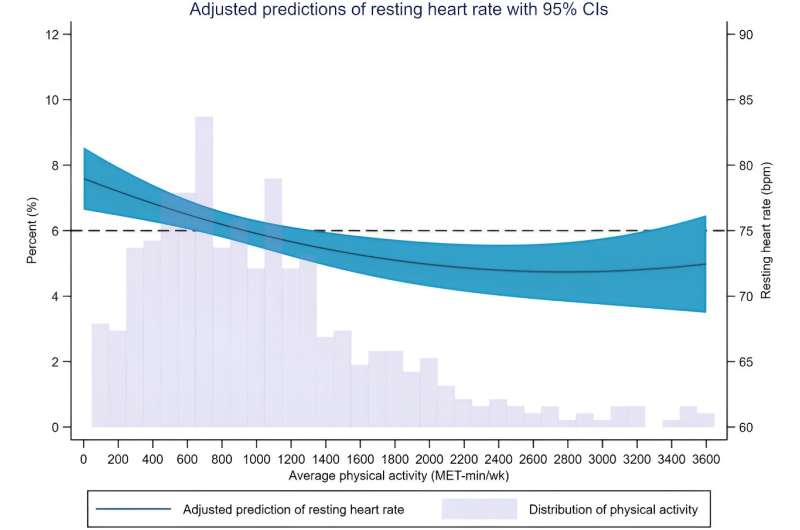This article has been reviewed according to Science X's editorial process and policies. Editors have highlighted the following attributes while ensuring the content's credibility:
fact-checked
peer-reviewed publication
trusted source
proofread
Young women can 'bank' exercise for better heart health

Researchers from The University of Queensland have found women can retain the benefits of exercise during their 20s, going on to have better heart health later in life.
NHMRC Emerging Leadership Fellow Dr. Gregore Iven Mielke and Professor Gita Mishra from UQ's School of Public Health analyzed longitudinal data from 479 women who reported their physical activity levels every three years from their early 20s to their mid-40s. Their study was published in the Journal of Physical Activity and Health.
"We wanted to explore whether women could 'grow' their physical activity, like bank savings, for enhanced cardiovascular health," Dr. Mielke said. "It appears they can. Women in their 40s who'd been the most active in young adulthood had a resting heart rate, on average, of around 72 beats per minute (bpm). That's compared to around 78 bpm for the women who'd been the least active from their 20s to 40s."
Dr. Mielke said while the difference may seem small, previous studies suggested an increase in resting heart rate of even 1 bpm was associated with increased mortality.
"A lower resting heart rate usually means your heart is working more efficiently and as it should be," he said. "These findings suggest that regular physical activity, irrespective of timing, appears to provide cardiovascular health benefits for women before the transition to menopause. It shows us that public health initiatives should be promoting an active lifestyle for women in their 20s and 30s, with the positive health impact still being evident later in life."
The researchers said knowing more about the potential effects of accumulating physical activity was important.
"Especially for women, as pregnancy and childbearing drastically impact on levels of physical activity," Dr. Mielke said. "Few other studies have used life course epidemiology models to explore the extent to which accumulating physical activity throughout life is important for preventing diseases."
The study used data from the Menarche-to-PreMenopause study, a sub-study of the Australian Longitudinal Study on Women's Health (ALSWH) exploring the health of 57,000 women for more than 20 years.
More information: Gregore I. Mielke et al, Physical Activity Accumulated Across Adulthood and Resting Heart Rate at Age 41–46 Years in Women: Findings From the Menarche to Premenopause Study, Journal of Physical Activity and Health (2023). DOI: 10.1123/jpah.2023-0082




















